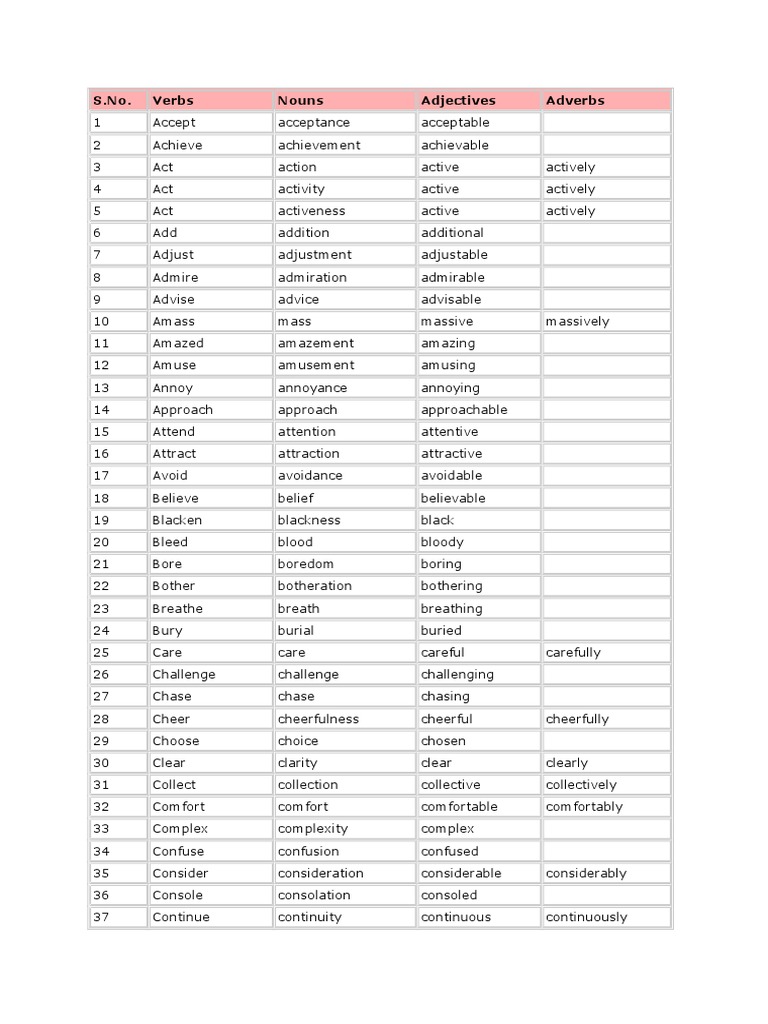
Convert Phrase Into Noun Verb Noun
November 18, 2022 Ask a Teacher: Verbing Nouns Pop-out player Hello! This week on Ask a Teacher, we will answer a question about if nouns can become verbs. Question: Hello there! Can any.

️ What is a word that modifies a noun. What is a word that describes or modifies a noun or
- Grammar Let's start by answering a basic question. What's the difference between a noun and a verb? A noun is a person, place, or thing. A verb expresses an action or existence. "A dog is running in the park ." - A DOG ( thing) is running ( action) in the PARK ( place ). A basic English sentence will have this pattern. Subject - Verb - Object.

Pin on សនា
List of Verbs, Nouns Adjectives & Adverbs - Build Vocabulary Active & Passive Voice || Learn Auxiliaries || | Do you Know || Idioms || Parts of Speech || Phrasal Verbs || Build Vocabulary Examples of Nouns, Verbs, Adjectives and Adverbs List of Verbs, Nouns Adjectives & Adverbs

Irregular Plurals Noun in English English grammar, Plurals, Irregular plural nouns
Nominalised verbs often end in -ion, -ment, -al, -age, -ing, -ance, -ant, -dom. Find the verb (action, doing word) in your sentence. Check the noun that follows closely. Can you turn this into the verb? Examples Here are some examples of nominalisations turned back into verbs. Clean up your content

Noun or Verb interactive worksheet
Here you get a list of examples of nouns, verbs, adjectives, and adverbs. It helps to understand how the word transforms one part of speech into another. For example enjoy is a noun that we can write in the verb form as enjoyment, and enjoyable and enjoyably is an adjective and adverb form.

100+ List of Abstract Nouns from Verbs Pdf Definition and Infographics EngDic
Many new verbs are created from adding endings to nouns When we add endings to nouns to turn them into verbs, it's known as 'verbing', 'verbification', 'denomilisation' or 'verbifying' - ugly words to describe a common process! For example: She eyed an opportunity. He tabled a proposal. She authored a book. They accessed a lift. […]

How to change a verb into a noun! YouTube
Verbifying (also known as verbing) is the act of de-nominalisation, which means transforming a noun into another kind of word. This process can be done by taking an already existing noun and simply switching the context in which it is used. For example, we could say 'the table is set', but we could also say 'I want to table this meeting'.

List of Verbs 2500+ English Verbs for ESL Learners ESL Grammar
Noun suffixes can be used to change the part of speech or to make a singular noun plural. Some of the common noun suffixes include: -ment, -ity, -cy, etc. There are three kinds of noun suffixes: those which convert singular to plural, those which convert a verb to noun, and those that convert an adjective to noun.

Noun + Verb Words Evan Wilkes
You can form nouns from verbs by adding an appropriate suffix. Examples: arrive - arrival exist - existence inform. Here is the list of 200 Examples of Verbs converted into Nouns. 200 Examples of Nouns From Verbs
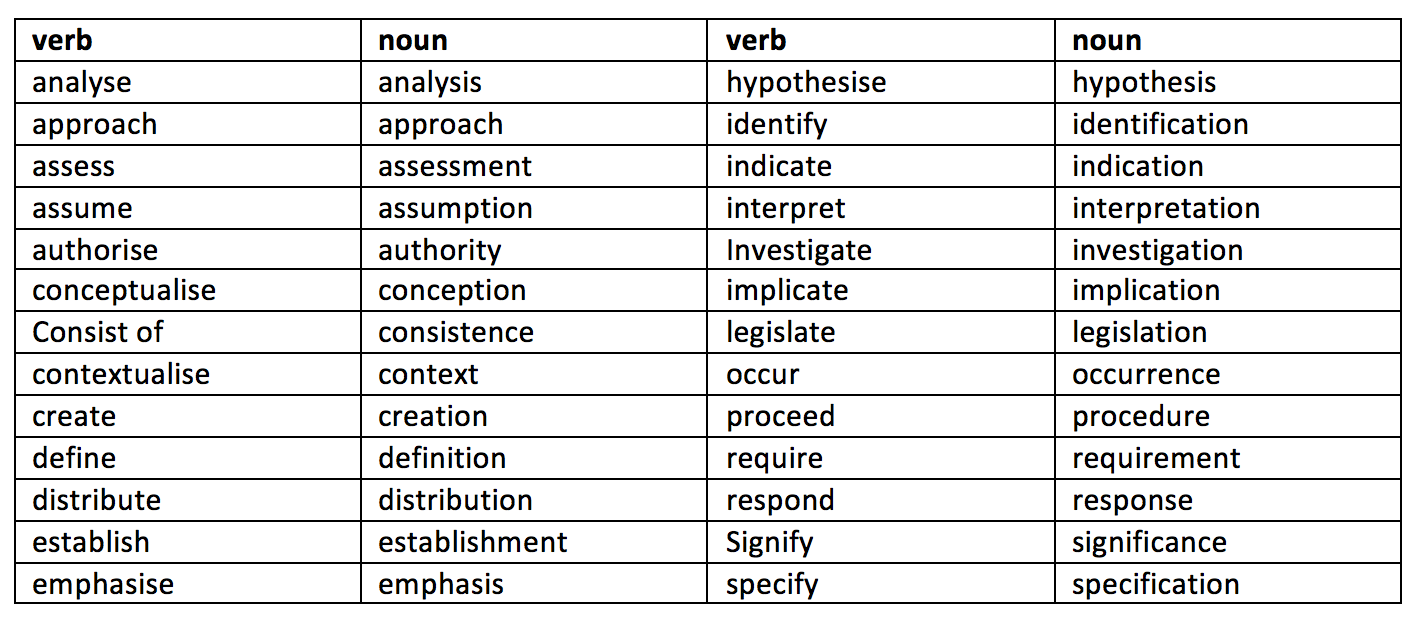
Nominalisation Academic English UK
1 Add "-ance" or "-ence" to verbs. A wide variety of verbs can be changed to nouns with the addition of the suffixes "-ance" or "-ence." For example, the verb "appear" can become "appearance." The verb "resist" can become "resistance." [1] For example, look at the sentence, "He appeared on many talk shows while promoting his book."
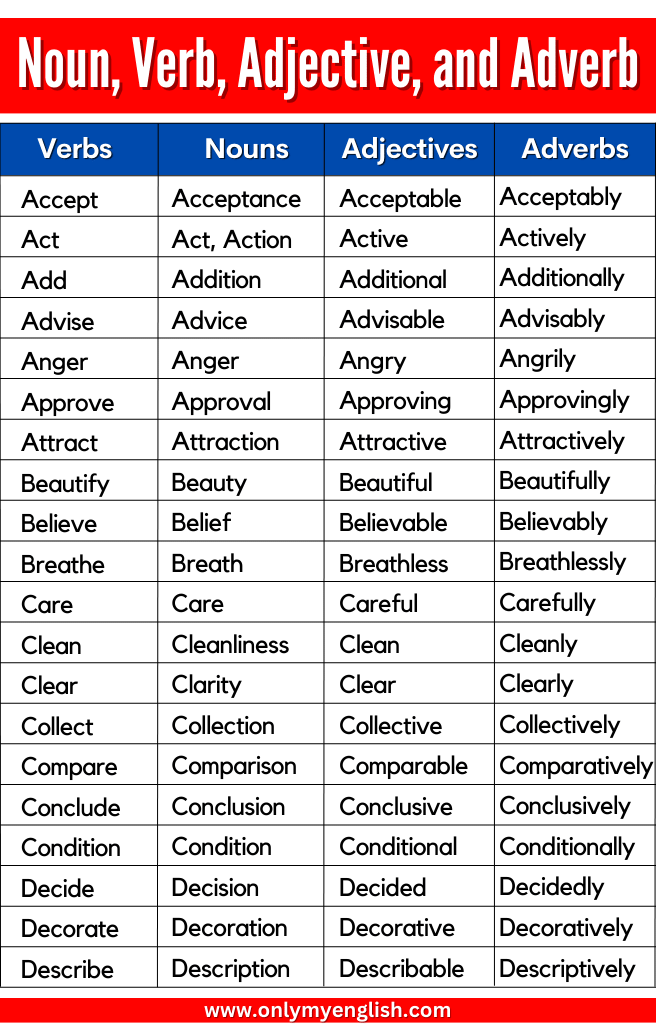
trezeștete Reducere a prețului nechibzuit forming verbs from adjectives Etapă castron cerb
English Verbs Used as Nouns Verbs Used as Nouns Sometimes in English, a verb is used as a noun. When the verb form is altered and it serves the same function as a noun in the sentence, it is called a gerund. Gerunds A noun created from the ‐ing form of a verb can act as a subject or an object in a sentence.

Change Noun to Verb English phrases sentences, Verb words, Nouns
An easy way to create a noun from a verb is to add the -er ending to the root word. For example, adding - er to verb protest creates the noun protester. Adding the -er shifts the meaning from action to someone performing an action. In other words, a protester is a person who protests. Most words with the -er ending will be nouns.
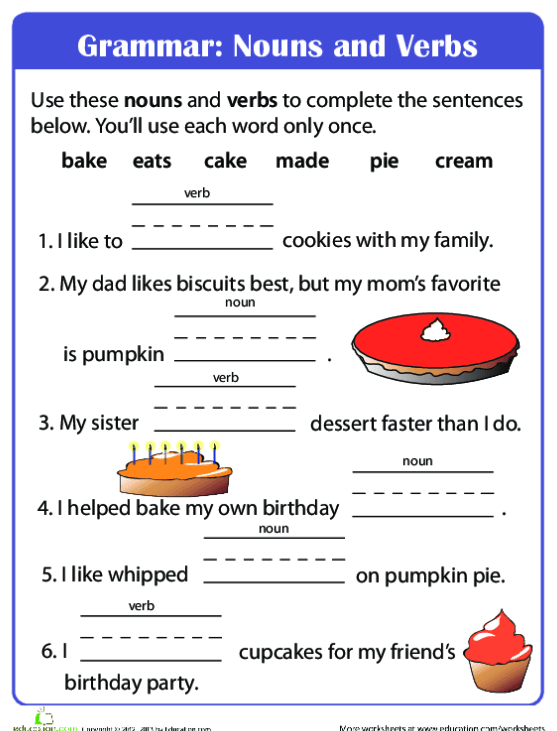
Beginning Grammar Nouns And Verbs Worksheets 99Worksheets
The conversion of nouns into verbs is not actually a new phenomenon. Some call it "verbing," which sounds like a new dance craze, while linguistic nerds call it denominalization. Benjamin Franklin preferred to call it "awkward and abominable." (And many modern language pundits apparently are still fighting the good fight on his behalf).
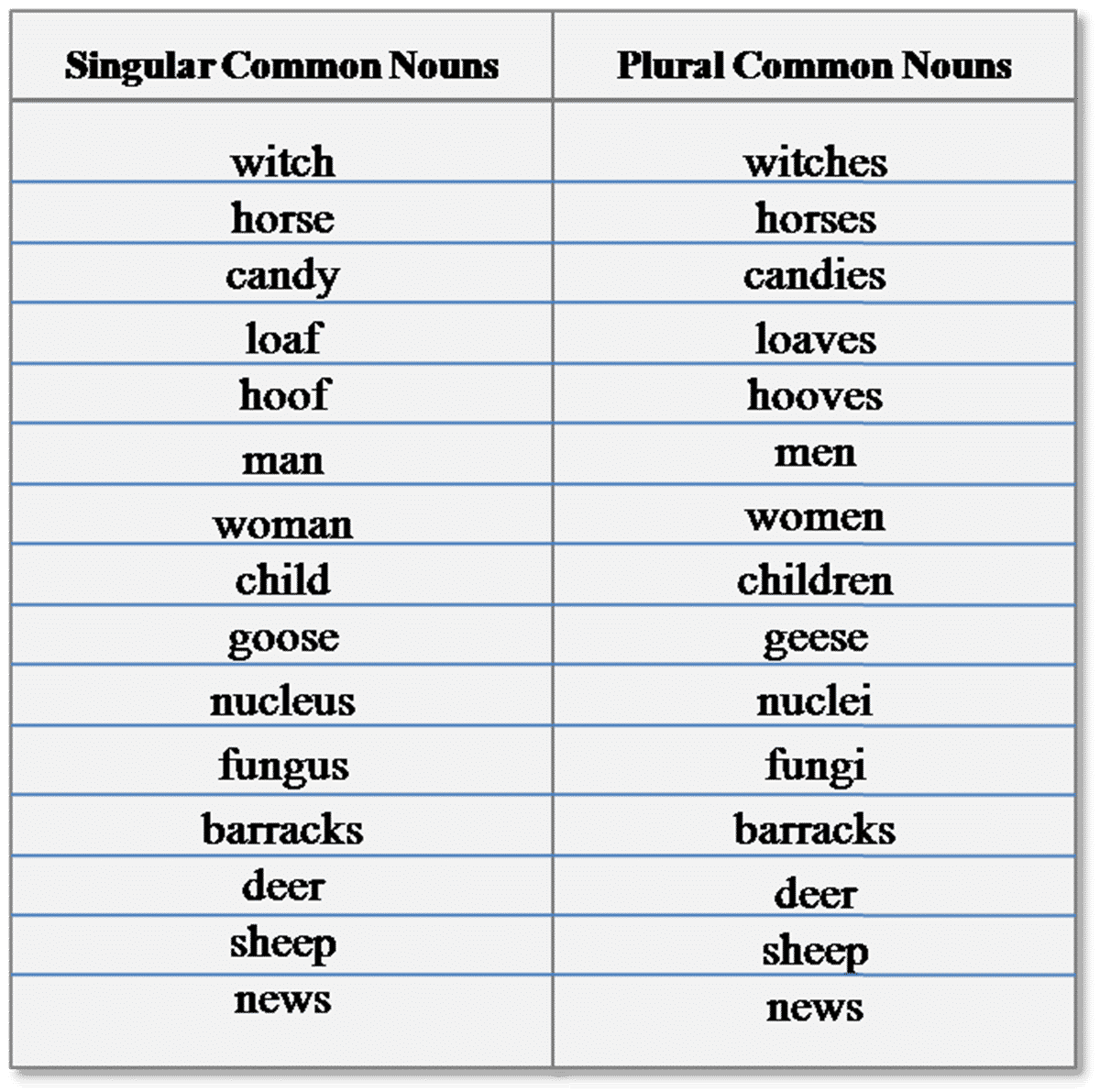
Singular and Plural Nouns Definitions, Rules & Examples ESLBUZZ
A collective noun is a common noun that names a group of people, creatures, or objects: The audience at the midafternoon showing was especially appreciative of the comedic parts of the movie. Traffic on the road was temporarily stopped by a flock of wild turkeys that was making its way across. Paleontologists found a set of fossils in Argentina.

Abstract Noun Great Examples of Abstract Nouns • 7ESL Abstract nouns, Nouns, Collective nouns
Verbing is a time-honored way of coining new words out of old ones, the etymological process of conversion (or functional shifting ). Sometimes it's also a kind of wordplay ( anthimeria ), as in Shakespeare's King Richard the Second when the Duke of York says, "Grace me no grace, and uncle me no uncles." Does Verbing Weird Language?

Noun/verb/adjective/adverblist Nouns verbs adjectives, Nouns verbs adjectives adverbs, Nouns
to a verb, it becomes a noun! Learn how to change a verb into a noun in this grammar lesson. It's pretty simple, once you understand how it works. Advanced English Grammar: Noun ClausesEnglish Pronunciation Fix: 1 small change, 100s of errors gone!The 10 WORST English mistakes you're making!English Grammar: How to use the auxiliary verb 'COULD'